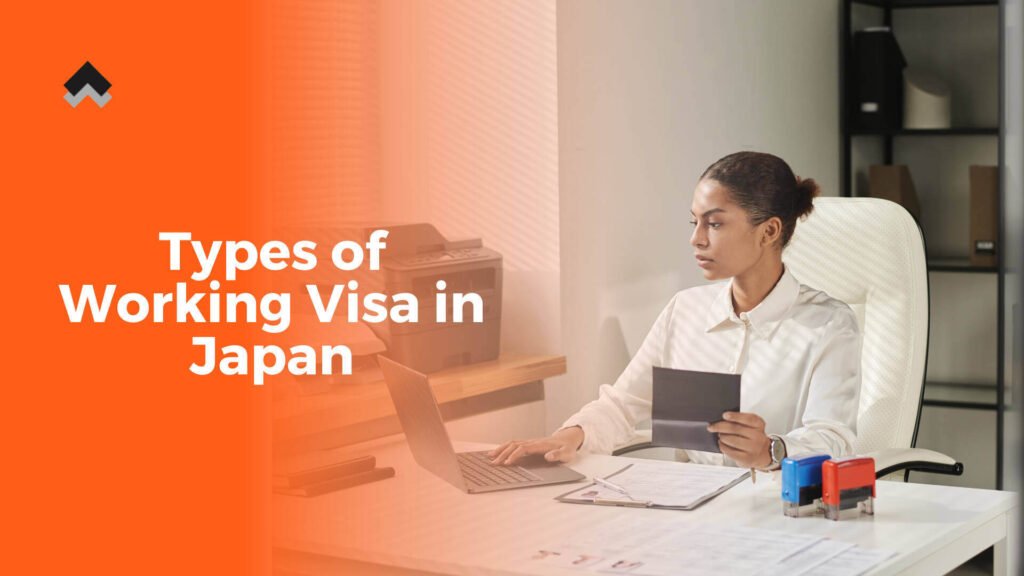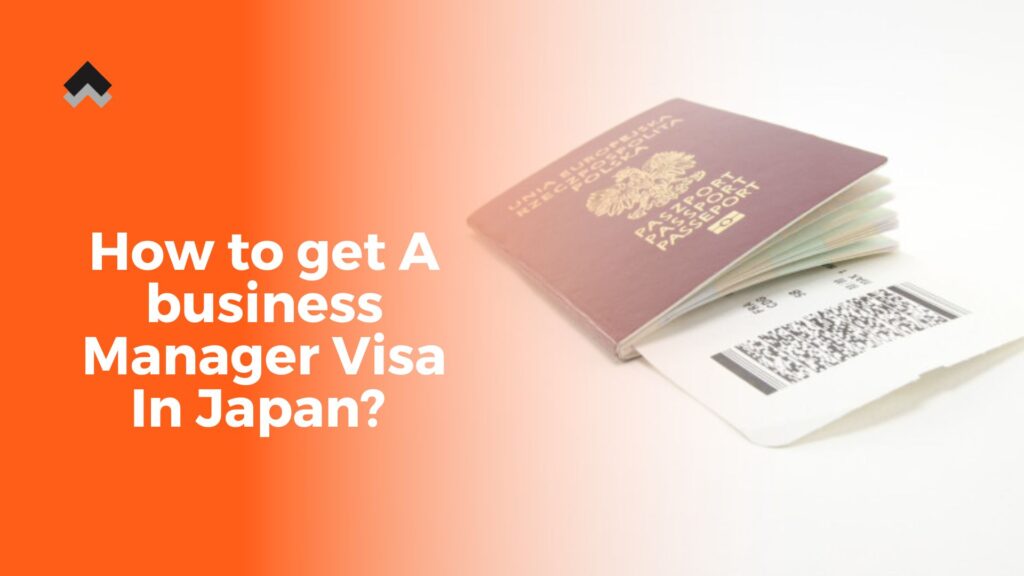In recent years, Japan has increasingly opened its doors to international talent, offering access to its dynamic market and new exciting job opportunities. However, obtaining an appropriate visa to have legal authorization to work and live here can be complicated, especially if it’s your first time applying for one.
Luckily, getting a valid working visa in Japan is not so bad as long as you follow the required procedures and gather the essential documents. In this article, we’ll walk you through the types of working visas in Japan, their application processes, and the necessary requirements so you can navigate these formalities with confidence.
What are the main types of Working Visa in Japan?
The Ministry of Foreign Affairs in Japan provides a quite impressive list of 32 different visa types under the “Work and Long-term stay” category, but not all of them are actually working visas. If you want to work in Japan, the following categories are the most typical working visas you can get depending on your occupation:
| Working visa type | Who is it for? |
| Highly Skilled Professional | Those who are regarded as “highly-skilled human resources” within the range of the existing conditions |
| Legal / Accounting Services | Attorneys, tax accountants, judicial scriveners, etc. certified in Japan |
| Business Manager | Company directors / presidents, etc. |
| Engineer / Specialist in Humanities / International Services | Scientific engineers, IT engineers, interpreters, foreign language teachers, designers, etc. |
| Intra-Company Transferee | People transferred to the Japanese branch (head office of the same company, etc.) |
| Skilled Labor | Culinary chefs specializing in foreign cuisine, pilots, trainers (animals / sports), etc. |
| Specified Skilled Worker | Work-ready foreign nationals with certain expertise and skills in certain industrial fields |
| Start-up | Entrepreneur supported by municipalities in Japan, the spouse / children of the entrepreneur |
| Other | Professors, artists, journalists, religious activities, medical services, researchers, instructors, nursing care, entertainer, technical intern training |
How to apply for your Working Visa in Japan
Required documents
Certificate of Eligibility (COE)
For your working visa application to be considered and processed smoothly, you have to obtain a Certificate of Eligibility (COE) from the Immigration Services Agency (ISA). Although it is not a requirement and not a guarantee of visa issuance, without the COE the application process might take several months and will require a large number of verification documents.
As the COE can only be issued by the Immigration Services in Japan, you’ll need a sponsor (your employer) who’ll be able to obtain one for you. They will be responsible for contacting their local Immigration Office to apply for your Certificate of Eligibility and submitting it on your behalf. The online application form is also available depending on the eligibility. Once the application has been processed, your sponsor has to send you the COE so you can submit your visa application and enter Japan. Some of the documents you sponsor will need to apply for your Certificate of Eligibility can include:
- Employment agreement
- Certified copy of the company register
- Copy of financial statements of an organization in Japan
- Proof of your sponsor’s status
Other documents
In addition to your COE, you should prepare the following documents for your working visa application:
- Passport
- Visa application form (can be downloaded here)
- One photograph (4.5 x 3.5 cm, white background)
Note that the required documents can depend on your working visa type and your nationality. For example, Russian, Georgian, or CIS nationals must submit two photographs and two visa application forms. Make sure to refer to the Japanese embassy website in your area to find out which documents you need to prepare.
Visa application
Once you’ve gathered all of the necessary papers for your working visa, you can apply at the Japanese Embassy or Consulate General of Japan, which has jurisdiction over your place of residence. The Embassy or Consulate General might contact you if you need to take an interview or submit any additional documents.
Note: you may need to make an appointment for your visit, so check your local Embassy or Consulate General for more information.
Processing Time, Costs and Visa Duration
Processing Time
Getting a Japanese working visa approved usually takes 5 to 10 days; however, receiving a Certificate of Eligibility might take 1 to 3 months.
Costs
The working visa fee is JP¥4,000 for the revenue stamp, and the COE is free of charge. However, you will likely need the help of a visa specialist to guarantee that you obtain your working visa. This service may cost anywhere between JP¥250,000 and JP¥500,000, excluding the incorporation fees (if necessary).
Visa Duration
In Japan, the duration of your working visa will depend on the visa type. Most working visas are issued for either 5 years, 3 years, 1 year, or 3 months. The examples of the exceptions include those who are:
- granted a Highly Skilled Professional visa with a fixed 5 years period of stay
- applying for a Business Manager visa, which can also be issued for 4 months
- applying for a Specified Skilled Worker, it’s issued for either:
- (i) 1 year, 6 months, or 4 months
- (ii) 3 years, 1 year, or 6 months

Special requirements
Different working visa types have different requirements. Let’s break them down into each of the categories we discussed in this section.
Highly Skilled Professional
A Highly Skilled Professional visa was designed to attract foreign workers with advanced or specialized skills who are likely to contribute to Japan’s economy. This is a special type of working visa where an applicant gets awarded points based on their educational level, academic achievements, professional background, and income. The visa status is given if the applicant can prove that they accumulated 70 or more points based on the fixed point chart. Some of the benefits this visa type unlocks:
- Faster access to Permanent Resident visa
- Possibility of bringing your parents to Japan (under certain conditions)
- Possibility of your spouse working on a full-time basis (under certain conditions)
Legal / Accounting Services
You have to be engaged in legal or accounting work to be given a Legal / Accounting Services working visa. You need to have legal qualifications such as a registered foreign lawyer (外国法事務弁護士 – gaikoku hōjimu bengoshi), or foreign certified public accountant (外国 公認会計士 – gaikoku kōnin kaikeishi).
Business Manager
To apply for a Business Manager visa, you’ll need a physical office space in Japan and a JP¥5 million investment into the business for a new application. If you have a virtual or a shared office, your chances of getting this type of working visa will significantly decrease. To avoid visa setbacks and ensure a smooth office launch, follow our expert advice on opening a branch office in Japan.
Engineer / Specialist in Humanities / International Services
For Engineers and Specialists in Humanities: university degree in the field of expertise or 10 years of professional experience.
For International Services: 3 years of professional experience in the field. Exceptions for interpretation / translation or language instruction – only a university degree is required.
Intra-Company Transferee
Intra-Company Transferee is a working visa type suitable for employees transferred to a business office in Japan for a limited period of time from a business office established in a foreign country. To obtain this visa, you must have worked for more than one year in the said office overseas.
Skilled Labor
For a Skilled Labor visa, you’ll need 3-10 years of professional experience in the corresponding fields. The number of years of experience will depend on the type of work you engage in.
Specified Skilled Worker
The Specified Skilled Worker visa is designed for foreign nationals who:
(i) work in jobs that require a considerable knowledge of or experience in Specified Industry Fields
(ii) engage in jobs that require proficient skills in Specific Industry Fields
The skills standard has to be confirmed by exam, with the exception of those who have completed their Technical Intern Training (ii).
Start-up
A start-up working visa is a more “simplified” version of a Business Manager visa, with fewer requirements and a less complicated application process. Obtaining this type of visa requires direct engagement with one of Japan’s 14 municipalities, a business plan, and other documents. For more information, refer to our detailed guide on how to apply for a start-up visa.
Other
To qualify for other working visa types in Japan, professionals must meet specific requirements related to their status, knowledge, or skills, depending on their field. For example, to be granted an Artist working visa, you should generate sufficient income from your artistic activities to support your life in Japan.

Resources for Visa Assistance
Before you get your Working Visa
Getting a Japanese working visa can be a painful task, but it doesn’t have to be! With the right guidance, not only will the visa application process be less overwhelming, but your chances of actually getting your visa will also increase. Here are some resources that you can refer to for assistance:
Ministry of Foreign Affairs in Japan (MOFA)
The Ministry of Foreign Affairs provides detailed information on visa categories, requirements, application procedures, and your nearest Japanese embassies. You can also find the details of your local Japanese embassy through their website t
Immigration Services Agency (ISA)
The Immigration Bureau will give you specific information about your working visa and the necessary documentation for your application.
Other useful resources
- Embassy or Consulate General of Japan in your country: will provide direct assistance and information specific to your location
- Immigration lawyers and consultants: can offer expert advice and support throughout your visa application process
- Online forums and communities: platforms like Expat Exchange, Quora, or Reddit can provide valuable insights and experiences from other applicants
When you arrive in Japan
If you made it to Japan, congratulations—this means that your working visa has been successfully approved! As you start your new chapter here, there are a few things you can do to facilitate the transition:
Learn about the Japanese business culture
The work environment in Japan is likely to be very different from the one you’re used to, so it’s a good idea to familiarize yourself with Japanese business etiquette early on. For example, learning Japanese business phrases and knowing how to exchange business cards in Japan will help you make a good first impression and avoid misunderstandings due to cultural differences.
Understand the Japanese tax system
Whether you’re an employee or a business owner, understanding the tax regulations in Japan is not a need but a must. Not only is a strong grasp of the Japanese tax system essential for compliance, but it can also save you money. If you want to learn how to reduce your taxes in Japan, then our tax reduction article would be an excellent place to start.
Make the most out of your time
Moving to Japan for work doesn’t mean you shouldn’t enjoy yourself! In fact, exploring your new surroundings, finding new hobbies, and making new meaningful connections will help you settle down faster and positively contribute to your well-being.
Final Thoughts
The working visa application process in Japan can be complex and frustrating, but with careful planning and preparation, it’s achievable. Understanding the different visa categories, gathering essential documents, and following the correct procedures are crucial steps to success. Remember that with your Japanese working visa, you will also have many exciting opportunities in Japan! Once you’ve settled in, take the time to explore the country, connect with new people, and immerse yourself in the rich culture.

